Why do so many women feel so horrible about feminism?
How did a movement that has achieved so much become so absurd and so vicious?
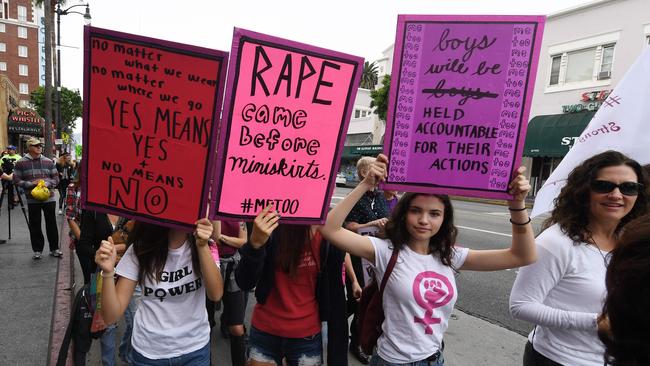
Oh, I’m sorry to start so horribly, but horrible is how so many women feel about 21st-century feminism. How did this movement that has achieved so much for women become so vicious, and absurd?
What is a woman? Is your feminism sufficiently intersectional? How woke is your answer?
OK, fair enough, feminists have never agreed on anything. The women’s movement — remember that phrase? — has always had its cliques. You can’t be a feminist if you get married, if you wear heels, if you like porn … the list goes on, and that has always been fine because we were thinking and talking and, anyway, we had right on our side, and we knew it, and therefore made progress but now, as we come roaring into the 20s?
We’re eating our own. In the process, we’ve cancelled ourselves.
Let’s go back: during the past decade Australian women have celebrated several significant milestones. In June 2010, for example, Julia Gillard became the nation’s first female prime minister. No, you don’t have to like her. You don’t even have to admire her. You do have to acknowledge the achievement.
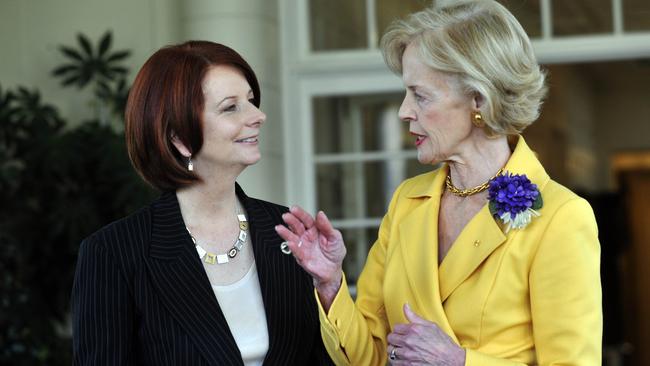
The gains kept coming. In 2011 the federal parliament introduced paid parental leave. In 2016 Linda Burney became the first indigenous woman to be elected into the House of Representatives. In 2017 Susan Kiefel became the first female chief justice of the High Court of Australia.
This year we learned that Australia’s highest paid chief executive would be a woman (Macquarie Group’s Shemara Wikramanayake) and so would Australia’s best performing chief executive based on shareholder returns (well done to Fortescue Metals’ Elizabeth Gaines).
At the time of writing, half of Australia’s 76 senators are women. Not all are white. Not all are straight, either.
There have been gains for women internationally, too.
In Iran we have seen the blossoming of the White Wednesday movement that sees women removing their hijabs and defying men to arrest them.
This past decade Saudi women gained permission to drive; women the world over are becoming more educated; they are more likely to own land; less likely to die in childbirth; more likely to be able to read; less likely to be circumcised.

This month Time magazine named a 16-year-old girl as its Person of the Year. Again, you don’t have to like her. You may think her misguided. But Greta Thunberg is captain of a movement that seeks to change the whole world. She did not, as many expected, receive the Nobel Peace Prize, but Malala Yousafzai did in 2014 for standing up for girls’ education; and Nadia Murad did last year for her campaign against sexual violence.
Some of these achievements come down to the attributes of the individual women and girls, to their courage and ability; to their showmanship, too, yet this decade won’t be remembered for any of that.
It will be remembered for the Reckoning. For the movement known as #MeToo. For the grassroots campaign to end workplace harassment that for one brief and shining moment held women together in a third wave of feminism.
Look back and try to find that movement now. You can’t. It’s gone, a victim of the woke wars or else this decade’s obsession with identity politics.
Divide and conquer? We’ve done that to ourselves.
Some history: we used to be a bit embarrassed, as women, by what happened to us in the workplace. The touching, the bottom-pinching, the put-downs. We endured being demeaned and assaulted. We ignored it or suppressed our feelings about it, even laughed along with it.
We thought it was personal. It was — has always been — political, and then came the Reckoning. #MeToo.
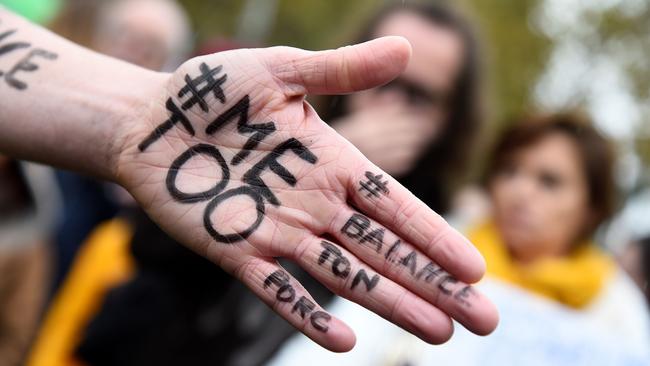
American writer, historian and activist Rebecca Solnit described the movement as “an attempt to address something old, and very deep and very destructive”. Jia Tolentino, in The New Yorker, went further: it was “jagged, brutal, contentious” recognition of the extent to which men have tended to abuse their power at work.
It began, lest we forget, with the election of Donald Trump. He took office in January 2017.
A women’s march was organised for Washington, DC, to protest the vulgarity of his remarks about women (“Grab ’em by the pussy. You can do anything”).
More than a half-million women, and some men, took to the streets to call out Trump’s misogyny. There were sister marches in Oslo, Berlin, Toronto and Sydney. Pink pussy hats were knitted and worn.
And then something else happened.
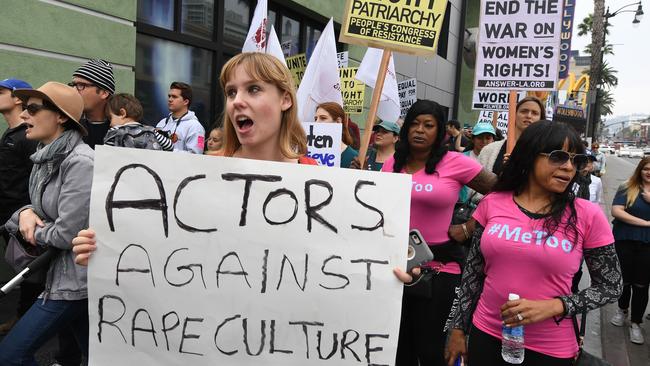
A door opened, and emboldened women began to run through it with their own stories of being abused by powerful men; and especially of being crushed, while their abusers continued to ascend, and soon we had #MeToo.
There was a hint as to the size of the problem in that hashtag: most women have experienced sexual harassment in the workplace and, oh, the ways in which they are over it. American writer-at-large for New York magazine Rebecca Traister put it this way: “I’m so tired. Tired of getting grabbed or pinched or demeaned, tired of having had to laugh. I’m tired of feeling paralysed, unable to confront friends and colleagues about what they just said or did.”
The movement gathered momentum and big names soon came tumbling down. Hollywood film producer Harvey Weinstein, once a fixture on the red carpet, now wears an ankle bracelet. Bill Cosby was arrested and imprisoned. Roger Ailes was fired from Fox News, and Matt Lauer from the Today show. Kevin Spacey was replaced as US president in House of Cards by his on-screen wife, Robin Wright. US gymnastics team coach Larry Nasser went to jail, and on it goes.
In Australia, the avuncular Don Burke was exposed as having made the lives of many women miserable with his crudity, and then what happened?
No, not the backlash, not yet anyway. There were some misfires.
“I’m not at all concerned about innocent men losing their jobs over false sexual assault/harassment allegations,” Emily Linden, from Teen Vogue, said in a now-notorious tweet.
“Sorry. If some innocent men’s reputations have to take a hit in the process of undoing the patriarchy, that is a price I am absolutely willing to pay.”
That can’t be right. That must be wrong. No one deserves to be unfairly accused, any more than they deserve to be belittled or assaulted.

Next came the decision by the website Babe to publish a young woman’s account of an evening with popular American comedian Aziz Ansari. It was meant to be explosive, an example of the horrors young women bear as they play the dating game.
It read like bad sex. Or as Caitlin Flanagan put it in The Atlantic: “She couldn’t call a cab?”
Now another door was open, and this time it was the #MeToo critics who came streaming through.
One hundred French women, among them film star Catherine Deneuve, signed an open letter published in Le Monde, offering an alternative view of the movement.
“As women, we do not recognise ourselves in this feminism,” the letter said. “It goes beyond denouncing the abuse of power, toward a hatred of men and of sexuality.”

Feminism had a split-second in which to respond. Workplace harassment was the issue that had galvanised women; it had widespread support, including from men. Fathers do not wish to see their daughters groped behind the cooler in the restaurant kitchen. Husbands do not want their wives coming home in tears.
We’re all agreed! But no, because women decided to embark instead on an argument with and about themselves, attacking, belittling, suing, deriding and cancelling each other over who can speak, and what we are.
In the process? We have lost the crowd.
If you’ve been wondering about the intro to this essay, it refers to transgender activist Jessica Yaniv, who this year filed a case with a Canadian human rights tribunal, complaining that she couldn’t get her testicles waxed.
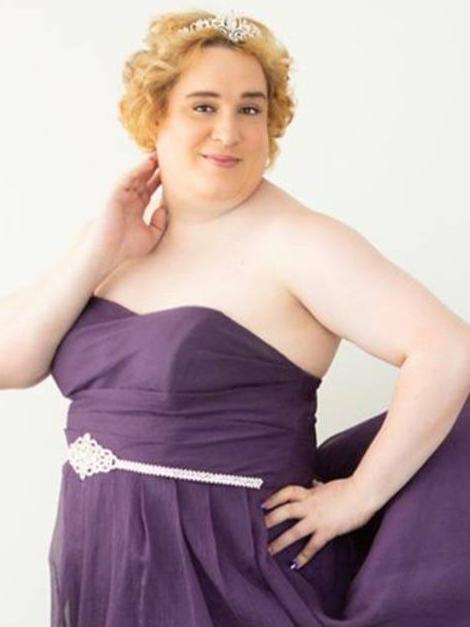
Yaniv is a transgender woman who hasn’t had surgery. She quite deliberately tried to make her appointments with women of colour, many of them modest, hijab-wearers, who had set themselves up in small business while choosing not to work outside the home.
Yaniv sought an order that would have forced them to address her hairy genitalia, in their spare bedrooms, against their will.
It sounds like performance art. I keep thinking it must be satire. Yaniv insists that she is serious.
She lost the battle on a technicality. The tribunal ruled that many wax artists simply weren’t trained to deal with a cock and balls and, therefore, Yaniv had to find a suitably qualified professional. She is not daunted, having since launched a human rights campaign against gynaecologists for refusing to accept her as a patient.
“Are they allowed to do that, legally?” she asked, on Twitter.
Comedian Ricky Gervais took Yaniv on, saying: “It’s disgusting that a qualified gynaecologist can refuse to check a lady’s c..k for ovarian cancer. What if her bollocks are pregnant? She could lose the baby. I’m outraged.”
I was going to dress up as something weird and creepy for my Halloween party, but I’m bucking the trend this year and I’m going as brave female activist Jessica Yaniv. This also means I don’t have to wax my big old hairy balls. pic.twitter.com/ldAvI0b2ot
— Ricky Gervais (@rickygervais) October 30, 2019
He can mock her. No one else dares. This is the debate we are now in. What is a woman? Who is a feminist?
In Britain this year, Maya Forstater lost her job as a visiting fellow at the Centre for Global Development for tweeting: “It is unfair and unsafe for trans women to compete in women’s sport.”
You may or may not agree, but woe betide those who are sceptical of the new gender ideology that now infects the movement. Just repeating: she lost her job.
JK Rowling — a writer, mother and philanthropist — stepped up to support Forstater, saying: “Dress however you please. Call yourself whatever you like. Sleep with any consenting adult who’ll have you. Live your best life in peace and security. But force women out of their jobs for stating that sex is real?”
Dress however you please.
— J.K. Rowling (@jk_rowling) December 19, 2019
Call yourself whatever you like.
Sleep with any consenting adult who’ll have you.
Live your best life in peace and security.
But force women out of their jobs for stating that sex is real? #IStandWithMaya #ThisIsNotADrill
JK has now been “cancelled” — meaning her views on human rights and feminism and women and work will not be taken seriously by those who think they have the floor. She’s big enough to handle it, and she has her supporters.
“If we’re cancelling JK Rowling for saying biological sex is real, then WTF even is feminism?” one woman asked on Twitter.
And that’s quite right: we refuse now to acknowledge sex as a biological reality, we cancel same-sex attraction, and there goes lesbianism and all its grand literature, and philosophies.
Transgender women deserve respect and protection in law, no question, but do we honestly accept, as we all must now do in Victoria, that a woman is anyone who self-identifies as such?
That there is no special, indeed sacred, conversation to be had about the insecurity and leakage and glory and fear that comes with being born female?
That there are some things — pregnancy, birth and nursing — known only to adult human females?
There’s a satirist on Twitter, Titania McGrath, who takes this stuff on, and what’s amusing is how many people don’t get the joke.
“All men literally begin their lives inside the body of a woman without her consent.
“(Footpaths) were designed in order to enable men to invade the personal space of female strangers without their consent.”
The accelerated oscillation of my vertebra cervicalis signifies a ratification of my ideological concordance with this intersectional critique of white male hegemony and a simultaneous negation of the potentiality of its repudiation.
— Titania McGrath (@TitaniaMcGrath) December 23, 2019
In other words, I’m nodding because I agree. pic.twitter.com/mwKuT7UTj4
Is this real? Is it satire? Who’s to say any more?
In real life, we’ve seen Germaine Greer ostracised for saying that her rape did not destroy her. She simply got on with things. Her own rape. You’d think she’d know. But that’s unacceptable, apparently.
The problem with the way women have rounded on each other is that it has made 21st-century feminism unpalatable, and we simply can’t afford that outcome.
There is still so much work to do.
Workplace harassment was never a problem on the scale of, say, forced female circumcision but it was something for Western women to get behind, as is the gendered workforce (female teachers and male principals; female nurses and male surgeons; female reporters and male editors); as is violence against women, especially in their own homes.
Maybe we disagree now, as women, about the way forward, but do we really? Forward is the way forward. It has always been that way.


I am woman. Wax my balls.